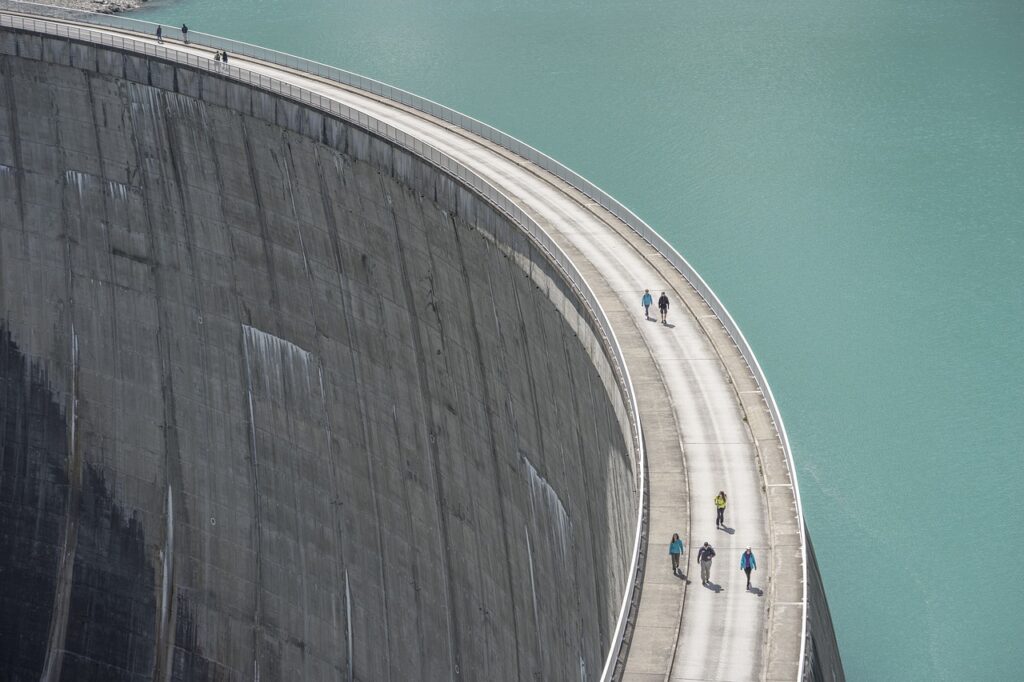There Are Those Who Have Fallen
Some say their faith has faltered, their prayers have ceased, and even worship has become a cold routine. They confess how weak they truly are—how every structure of belief they built collapsed in a single day.
Many call it a failure of faith. They feel they’ve regressed, turned back, abandoned what they once held. But is that collapse truly a failure?
No—falling is not a failure of faith but the very structure of faith itself. It is not a mistake to avoid but a truth that must be passed through. Without collapse, God does not become real.
Until we fall, we still trust in ourselves. Even in prayer, we rely on our own will. Even as we read the Word, we trust our logic. Even in worship, we lean on our own piety. That is why we must fall.
For God to be tangible, the structure called “me” must be broken.
Genesis 3 testifies to humanity’s first fall. Adam and Eve did not merely eat the forbidden fruit; they chose freedom apart from God. They chose the possibility of life without Him.
It was no small error—it was the collapse of being itself, severed from its Creator. Humanity did not simply separate from God—they tried to replace Him.
The consequence of that fall was not just exile from Eden. It marked the distortion of all human spiritual structures. Every fall since is not just a mistake but a manifestation.
When something other than God sits at the center, faith inevitably collapses. No matter how impressive the devotion or obedience, if God is not central, it will not endure.
Collapse is not something to be covered in guilt—it must be faced with theological clarity.
Peter fell—completely. Before the rooster crowed, he denied Jesus three times. Trembling in fear, he couldn’t even recall who he was. “I do not know the man.”
Before the words finished leaving his mouth, Jesus looked at him. Peter went out and wept bitterly.
That moment was not merely betrayal. Peter had once declared Jesus the Christ, walked on water, stood on the Mount of Transfiguration, and vowed to follow Him unto death. And still, he fell.
Not the strangers, but the closest one fell the hardest. Collapse is not reserved for the faithless. It happens at the edge of belief—at the peak of zeal and certainty.
It’s not the crumbling of false faith. It’s where real faith begins.
Faith is a matter of the heart. The more pious one appears outwardly, the more hidden the center becomes. Many read the Word, worship, and pray while building their faith upon self.
It begins with God’s name but ends with personal mission, fulfillment, and satisfaction.
Prayer becomes a demand, not a surrender. Scripture becomes a justification, not revelation. In the end, it’s not God they believe in—but the system of religion.
That system can stand long—fueled by effort, discipline, and zeal. But it eventually collapses.
And though it feels like a shock, it is the hand of God. God will not tolerate piety built apart from Him.
To leave only Himself standing, He tears down every godless structure.
Collapse is not emotional breakdown. It is logical disintegration—the moment when our theology, plans, and confidence fall apart. And it is there that God becomes real.
He is not a theory or concept. He is a Person, a presence, a touch.
As long as self survives, God feels distant. The stronger our grip on our convictions, the more abstract God becomes.
When we finally see that our devotion was centered on ourselves, all our godliness becomes illusion.
This is the essence of collapse. It is the most painful passage, yet the most necessary grace. Collapse is not the end of faith—it is the beginning.
We don’t want to admit collapse. We rationalize it or bury it beneath emotion. But it is not avoidable. It is grace.
If our faith can survive without God, it was never faith to begin with. And so God breaks it—because He loves us.
Collapse is not a human consequence. It is divine intervention. Without passing through it, God never becomes real.
In the fall, we hear Him. In the ruins, we touch Him.
Any faith that can endure apart from God is an illusion. No matter how fruitful, how long-lasting, or how recognized it may be—if God is not central, it is destined to fall.
Piety without God cannot last. Because God desires that we trust only in Him. So He lets us fail, stop, and lose clarity.
Our passion fades. Our prayers go silent. The Word loses its sweetness.
It is not because of sin, but because of love. It is His grace—tearing down all structures built apart from Him.
In Isaiah 30, God describes Israel’s fall as “like a wall broken down in an instant.”
This was no mere accident. It was a collapse God Himself ordained.
When God’s people rely on others rather than Him, when they act without seeking His will, He dismantles their outward religion.
Why? Because security without God is not security at all.
We try to feel safe in systems we built—through passion, ministry, and structure.
But God says:
“In repentance and rest is your salvation,
in quietness and trust is your strength—
but you would have none of it.”
Repentance. Rest. Quiet waiting.
These have become the most foreign words in our modern faith. Collapse is God’s invitation into that strange space.
He does not ask us to do more. He asks us to stop—tear down our self-confidence, and descend to the place where only He remains.
Collapse is not the prerequisite to healing. It *is* healing.
Because until we arrive at that place, we will never cling to God.
It is only when we reach our end—when nothing is left to hold, to boast of, or to say—that our hearts can truly bow.
And there, God is touched.
We once could speak of Him, teach about Him, describe Him—but now, we *cling* to Him. Because without Him, we cannot live.
Collapse is the breaking of the self.
The self hides in our long record of faith. We prayed, worshipped, kept the Word, served. So we think we are strong.
But when that strength becomes the scaffolding of the self, God brings it down.
Piety sustained without God is not of God.
True faith is not holding ourselves up—but laying ourselves down.
The faith we protect destroys us.
The faith God protects brings us to life again. Collapse happens there—where our self-made godliness falls, and God’s life begins anew.
Peter became an apostle *because* he fell.
At dawn, when the rooster crowed, Jesus turned and looked at him.
No words. Just a gaze.
It was not a look of judgment. Not anger. It asked, “Do you love Me?”
Peter wept.
Only then did he see himself. All his confidence, his loyalty, his vow to follow Jesus to death—it was all built on self-righteousness.
He fell. And Jesus came to him again. “Feed my sheep.”
Only those who have passed through collapse can begin true calling.
Many believers today feel silence, weariness, numbness.
Perhaps that, too, is grace.
Not the end of faith, but its turning point.
The joy may fade, the emotion may dull, prayer may feel stuck.
But it is not divine absence. It is deeper presence.
God works through collapse.
He breaks structures, shakes egos, uproots false peace.
And in that shaking, we meet not the God we once knew—
but the God who is more vast, more near, more real.
Not a God of concepts, but the God we encounter through tears.
To meet Him this way—we must be willing to fall.
And even that willingness is grace.
So I ask:
Are you ready to fall?
Or rather—do you have the faith to receive your collapse as grace?
When your inner order is broken, when your certainties unravel, when your devotions dissolve—will you seek His face?
Collapse is not disgrace.
The Gospel begins there.
The cross of Christ is the ultimate collapse—for sinners.
He abandoned glory, came as a man, was mocked, spat upon, and finally died on the cross.
Salvation began in that fall.
Our redemption is built upon His collapse.
So we, too, must fall.
We must lay down all we’ve built without God, until only God remains.
There—real faith begins.
Maeil Word Journal | Today’s World, Through the Lens of the Word




